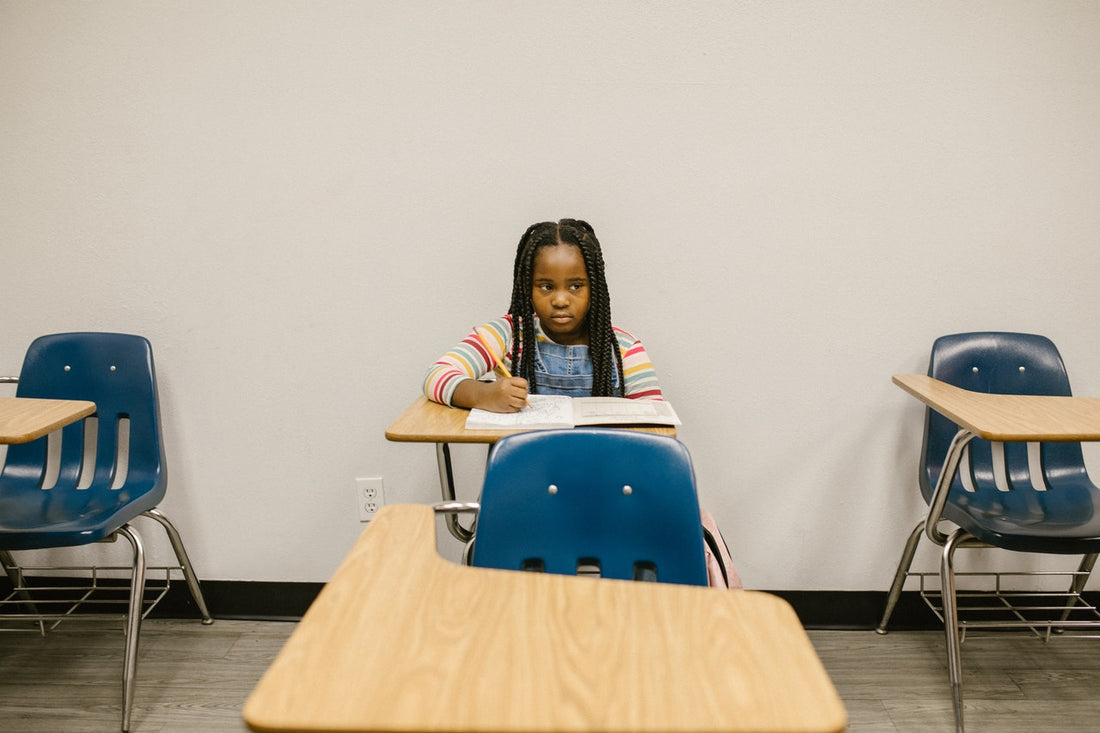Black girls face many biases – adultification bias being one of them. As children get older, adults have expectations of their academic achievements, behaviour and emotional regulation. These expectations are helpful when in accordance with their stage of development. However, research suggests that adults are less accurate about the evaluation of Black children compared to White children. Today we’re exploring what adultification bias is, examining studies and research on the topic and understanding how it can lead to emotional dysregulation.
What is Adultification Bias?
Adultification bias refers to how Black children are viewed as less innocent and treated as if they are more mature than their age. This bias is seen to happen from the age of 5 years and older. Georgetown Law completed a study to examine the adultification bias of black girls in the United States and its effects. This bias looks specifically at how black girls are treated differently than white girls, being held to a more ‘adult’ standard and not given second chances that many white girls are given.
What the Research is Saying
Referring to another report, Listening to Black Women and Girls: Lived Experiences of Adultification Bias, we’re able to see the effects of this bias. This study addresses interviews with black girls and women between the ages of 12-60+, conducted throughout the United States.
This study – among others, found that black girls faced negative stereotypes that deemed them aggressive and hypersexualised, adults have less sympathy for black girls than white girls and authority figures treat black girls inappropriately. This is in part due to adultification but other factors such as racism, sexism and poverty contribute to the bias.
We can also see how adultification bias affects black girls by looking at how they are disciplined. They face discipline for their mistakes, where their white counterparts are more likely to be excused and seen as children being children. They are 2.7 times more likely to enter the juvenile system than white girls. This is problematic because new research supports that adultification bias contributes to these issues.
Recent Examples of Adultification Bias
Unfortunately, adultification bias happens more often than you think. A 15-year-old black girl referred to as Child Q in London faced this bias when she was strip-searched at school, without her parent’s consent and while she was menstruating. No drugs were found in her possession. This incident took place because the young girl was believed to have brought weed to school with her. It was evident that she did not receive a 'child safeguarding response’ but instead received a disciplinary response from all the adults present. It was traumatising for the girl, who had done nothing wrong and wasn’t protected by the school or authorities. Intended or not, racism influenced how this girl was treated. She required therapy and was found harming herself afterwards.
Emotional Dysregulation
‘Adultification’ can occur in single-parent house holds and families with one child. It can be advantageous when holding a mature and positive conversation with a child that is mature enough to engage with. However, if the expectation is not within the child’s developmental stage then the child is less likely to meet the adult’s expectation. The adultification bias of Black children have negative consequences. It can deprive Black children of their childhood leading to emotional dysregulation. That is when a child finds it challenging to respond appropriately to social situations and has trouble regulating their emotions.
You can imagine how difficult it must be for black girls who experience adultification bias and are emotionally and socially scarred when they are treated differently than white girls. Since they are faced with more discipline, harsher treatment, less empathy, higher standard and receive less support than white girls, they’re unable to experience a proper childhood. Without the privilege of being able to express certain emotions in fear of being treated in a certain way, black girls are at risk of emotional dysregulation.
Emotional dysregulation is concerning, as it plays a large role in how children build relationships, connect with others in social settings and what type of education they’ll receive. It may result in developmental differences that could lead to mental health difficulties as black girls grow up.
When black girls are faced with the adultification bias and seen as ‘little women’, they feel as if they need to grow up much faster and therefore don’t get to regulate their emotions in the same way that white girls do.
How to Evoke Change
Black girls aren’t the only ones facing adultification. Black boys are also seen as much older than they are and treated differently than white boys. Disrupting this bias starts with awareness and understanding. We need to understand the harm black youth is experiencing in order to properly support them. Joining campaigns such as Say Her Name, is one way you can speak up for black girls experiencing adultification and educate others about this issue. Adultification bias in schools should be challenged; educators are in a unique position to prevent this phenomenon in learning spaces.
Author: Antoinette


1 comment
Very good post and very timely, something we are so familiar with but doesn’t get addressed. Thank you for shedding light on it.